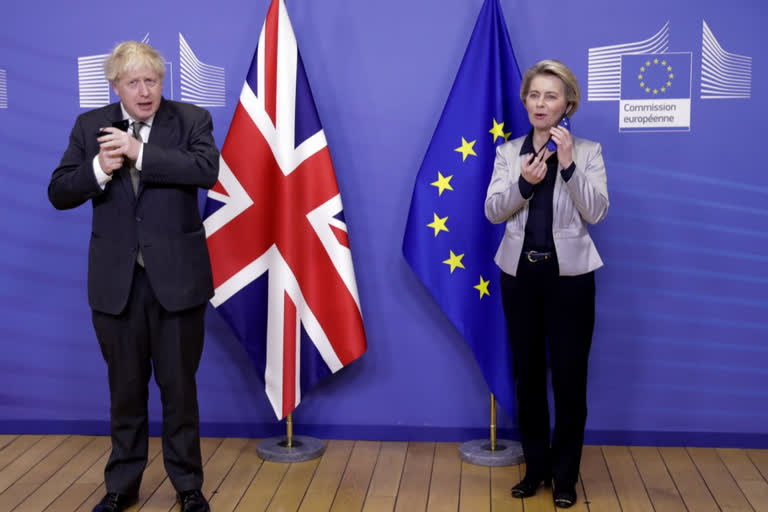Brussels:In the end, not even dinner of scallops and steamed turbot could bring the leaders of the European Union and Britain any closer together than months of talks by negotiators seeking to cobble together a trade deal in the wake of their Brexit divorce.
European Commission President Ursula von der Leyen and U.K. Prime Minister Boris Johnson gave the two sides four more days, until Sunday, to end four years of diplomatic heartburn and salvage the unlikeliest of trade deals after the U.K. voted to leave the EU in 2016. Otherwise, they face a tumultuous no-deal split at the end of the month, threatening hundreds of thousands of jobs and billions in losses.
Even after two lengthy phone calls and a three-hour dinner in less than a week, there was still far too much which was unpalatable.
“We understand each other’s positions. They remain far apart,” von der Leyen said.
Von der Leyen said that Johnson's three-hour meeting was “lively and interesting.” But a whiff of progress anywhere? None.
Britain left the EU on Jan. 31 but remains in its economic structures until the end of the year. That means a serious economic rupture on Jan. 1 that could be chaotic if there is no trade agreement.
The two leaders had hoped to inject political momentum into trade talks that have become hopelessly deadlocked on fishing and other key aspects of the future relationship. But Britain and the EU gave ominously opposing views of the main sticking points — and each insisted the other must move to reach an agreement.
Read:|UK PM to visit Brussels as time runs out in Brexit talks
Johnson told lawmakers in the House of Commons that the bloc’s demands that the U.K. continue to adhere to its standards or face retaliation were not “terms that any prime minister of this country should accept.”
German Chancellor Angela Merkel stressed that the EU would not compromise on its core principles. Merkel told the German parliament that the bloc would “take a path without an … agreement if there are conditions from the British side that we can’t accept.”
The U.K. left the EU after 47 years of membership but remains within the bloc’s tariff-free single market and customs union until the end of the year. Reaching a trade deal by then would ensure there are no tariffs or quotas on trade in goods on Jan. 1, although there would still be new costs and red tape for businesses.
